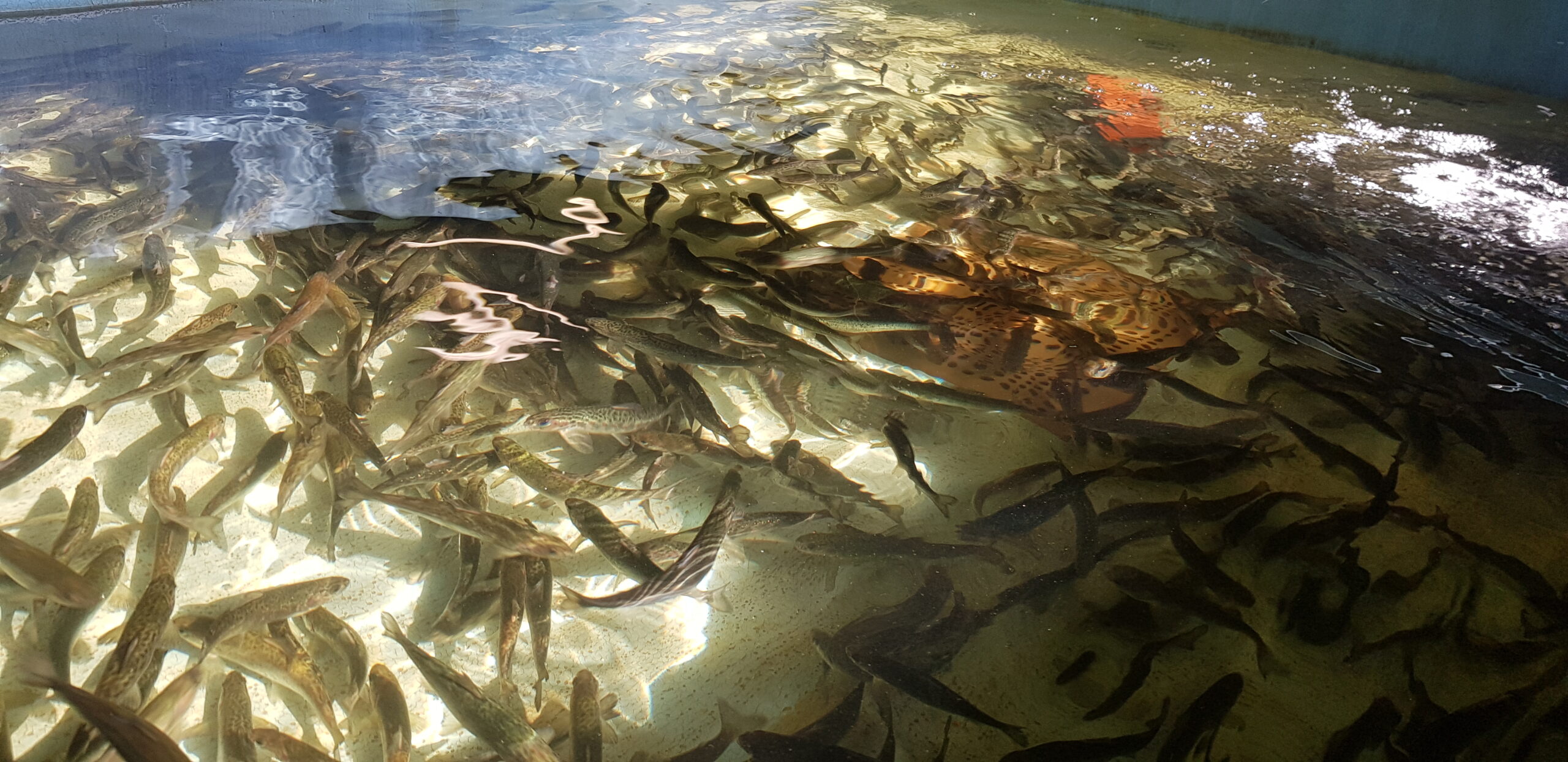Send us a message

Project duration
01.03.2024 – 28.02.2026
Project ERDF co-financing
397 716,80 EUR
SPPwelfare
LL-00133
Latvian and Lithuanian conjunction – Improvement of Baltic salmon and pikeperch rearing methods for more sustainable, resilient and healthy fish populations.
Common territorial challenge (s) that will be tackled by the project
Salmon and pikeperch are key species for the ecological, economic, and cultural benefits they provide both for Latvia and Lithuania. Salmon are reared and released into rivers of both countries, applying recirculation and flow-through systems. The survival rate of reared salmons depends on rearing conditions, welfare, and handling practices. Throughout the project, partners will enhance salmon health through the application of new probiotics and elaboration of biosecurity protocols. Pikeperch is known for its challenging artificial reproduction, that necessitates the exchange of knowledge and refinement of methodologies to ensure high-quality restocking efforts. Emerging issues require cooperation between both countries and integration of knowledge and value in fish farming context.Project objective
To develop enhanced rearing methods for Baltic salmon and pikeperch, aiming for restocking juveniles for more sustainable, resilient, and healthier fish populations. The primary aim is to mitigate anthropogenic impacts on the environment by minimizing antibiotic pollution and increasing biosafety and welfare standards in fish farms.Planned activities
During the Project both partners will share their experience in pikeperch and salmon artificial reproduction and farming. The new methods for the use of probiotics in aquaculture will be adapted and developed to achieve the improvement in fry growth, survival and immunity of fish. In addition, partners will cooperatively develop a farm-specific biosecurity plan that identifies disease concerns, high-risk areas and implements the best practices. Fish health index model (FHIM) will be developed for salmonids: data from both partners will be collected, data collection methodology will be systematized, FHIM database will be created. Project information, improved methodologies and practice will be shared during a variety of public events, including conferences and meetings in both Latvia and Lithuania, informative posters, published information on various resources.Project results
As a result, we expect welfare improvements for salmon and pikeperch in fish farms. The main goal is to promote a sustainable, resilient and healthy fish population in natural waters of Latvia and Lithuania, by in-depth elaboration of biosecurity issues in fish farms and a newly developed Fish health index model (FHIM). Biosecurity measures will be incorporated in national restocking program for fish resources reproduction of Latvia.
The project will bring new knowledge, material and technical basis, experience and new goals to both countries and will ensure further coordinated cooperative work in the field of reproduction of fish resources and aquaculture





